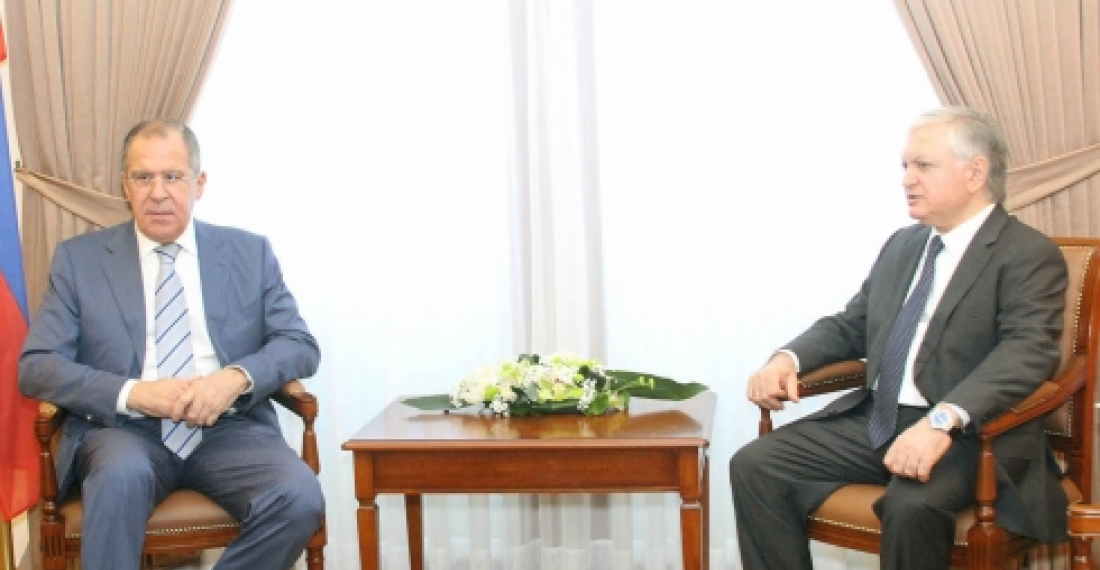Russian Foreign Minister Sergei Lavrov on Monday met with Armenian Foreign Minister Edward Nalbandian in Yerevan. Lavrov is in the Armenian Capital to participate in a meeting of Foreign Ministers of the Collective Security Treaty Organisation (CSTO), the Russian led military alliance of which Armenia is also a member.
A statement on the website of the Armenian Foreign Ministry said that "during the meeting, the interlocutors touched upon the steps being undertaken towards the realization of the arrangements on the Nagorno-Karabakh issue reached at the Summits in Vienna and Saint Petersburg."
Reports from Moscow had earlier suggested that Lavrov would be pushing for progress in the discussions on the settlement of the Nagorno-Karabakh conflict during his visit to the region. Over the weekend Lavrov also held telephone conversations with US Secretary of State John kerry and the Foreign Minister of Germany Frank-Walter Steinmeier during which the Karabakh conflict was also discussed. Steinmeier, who currently chairs the Organisation for Security and Co-operation in Europe (OSCE) has just returned from a visit to the South caucasus where he met the leadership of the three countries in the region.
source: commonspace.eu
photo: Armenian Foreign Minister Nalbandian and Russian Foreign Minister Lavrov at their meeting in yerevan on 4 July 2016 (picture courtesy of the Press Service of the Foreign Ministry of Armenia).






